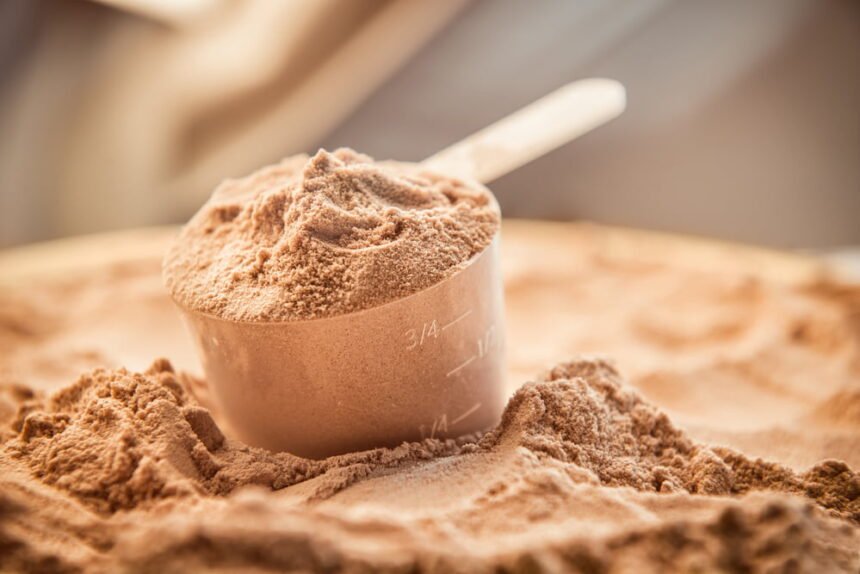Regular gym devotees and bodybuilders know how important protein is for muscle growth and tissue repair. The use of protein powder, whey being the most common of them all, is not just limited to muscle regeneration but has a myriad of other health benefits too. For those looking to start with protein-based supplements, this article highlights the different benefits and the best time of protein intake for maximum muscle growth.
Various Advantages of Protein Powder for Different Purposes:
We have talked in the past about the benefits of protein shakes. However, you might want to learn a little bit more. Here are some other benefits as well.
- It helps in weight management by filling the appetite without the need for all the unnecessary carbs.
- It plays an important role in muscle recovery during sleep and after a strenuous fitness session.
- It acts as a form of added nutrition to keep up the required values in adults, especially if regular meals can’t boost them.
- Vegetarians can use specific protein supplements if they are not opting for milk-based beverages. Protein supplements with low sugar levels are also available for those battling diabetes. Simultaneously, there are several types of protein-based consumables for people with health-related issues regarding the liver, kidneys or digestive tracts.
With Australia’s market for protein supplements valued at 90.69 million dollars as of 2020, various stores and enterprises have started to tap into the already growing industry. Part of this demand can be attributed to the increasing awareness in the country for fitness and health. However, the rise in alternative option-based consumables like candy bars, beverages or drinks can also play a role in this growth. With a dynamic range of utilities and products, one can undoubtedly say that the market for protein supplements will grow to a major contributor to Australia’s already established fitness industry.
Spending Hours in The Gym Versus the Time in The Kitchen:
The main reason why the market for protein powder stays relevant is that many individuals, especially working adults, don’t have time to dish out good meals after a busy day. Add to that the number of hours in the gym and a seven-hour sleep (if not more) and there won’t be enough time left to prepare nutritious food to keep up with the carbs and protein intake. Protein supplements solve this problem and drastically reduce the time required for meal preps. The most common way bodybuilders take in protein is by preparing protein shakes with milk or other additives to make a smoothie or fluids.
There are also a lot of plant-based protein shakes. These can be great for people on vegetarian diets.
Getting Those Protein Levels Up: When’s The Best Time to Hit Up a Scoop of Protein?
This question will vary widely depending upon the goals and fitness routines of every individual. Moreover, no two individuals are the same in terms of metabolism and weight.
- For those looking to reduce their weight, indulging in protein-rich snacks in the afternoon may deter a person from eating heavy meals later in the day.
- For muscle growth, this being a highly debated topic, the best time would be the “anabolic” window after a workout. This window is a common gym jargon that is used to specify the time of about 15 minutes to an hour after a workout session, where protein intake has the maximum potential to be absorbed and broken down.
- To improve performance and endurance and also facilitate recovery, the protein intake should be right after the workout.
- For those in the more senior age gap, taking protein supplements before bed can help with muscle mass.
Surprisingly, since protein is a nutrient, there’s no specific limit of consumption and contrary to the popular belief, too much protein will not harm the organs of the body. There isn’t any scientific or medical evidence to support this claim. But, to keep things safe, it’s better to stick to the recommended amount prescribed by a nutritionist or a doctor.

